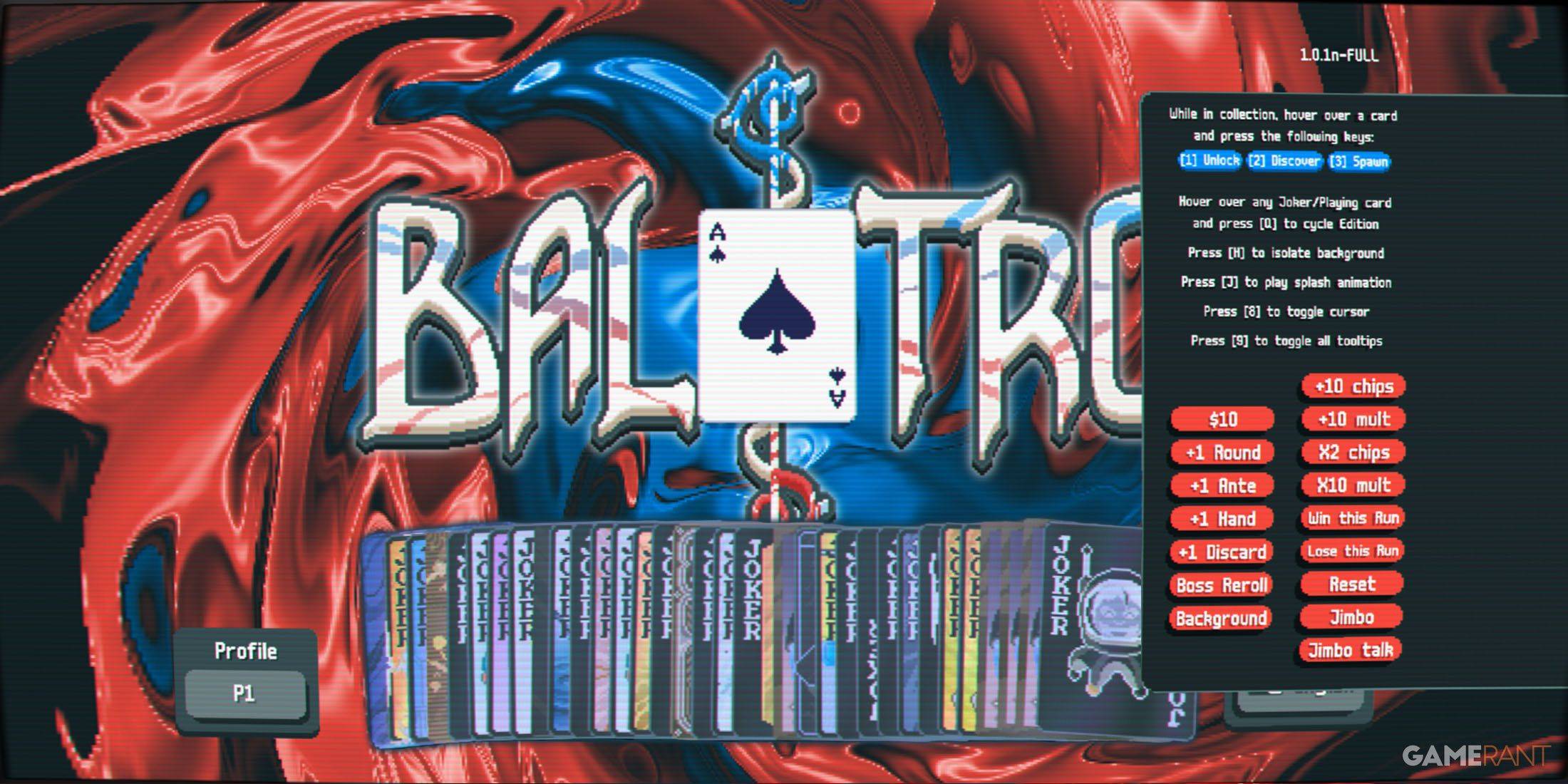The Nvidia GeForce RTX 5090's underwhelming generational leap over the RTX 4090, coupled with its higher price, left many wanting. However, the RTX 5070 Ti offers a more compelling proposition. While not dramatically faster than its predecessor, its affordability makes it the most sensible Blackwell-architecture card for most consumers, particularly those on a budget.
At its $749 base price, the GeForce RTX 5070 Ti excels as a 4K graphics card, effectively overshadowing the more expensive RTX 5080 (provided you can find either at their MSRP). It's crucial to note, however, that aftermarket models, like the $1,099 MSI version reviewed here, significantly inflate the cost, surpassing the RTX 5080's $999 price point. If you can secure an RTX 5070 Ti at its base price, it's arguably the best graphics card for the majority of gamers, especially those aiming for 4K gaming.
Purchasing Guide
The Nvidia GeForce RTX 5070 Ti launched February 20, 2025, with a starting price of $749. Remember, this is just the base price; expect considerable price variations across different models. While excellent value at $749, its appeal diminishes as the price approaches that of the RTX 5080.
Nvidia GeForce RTX 5070 Ti – Photos
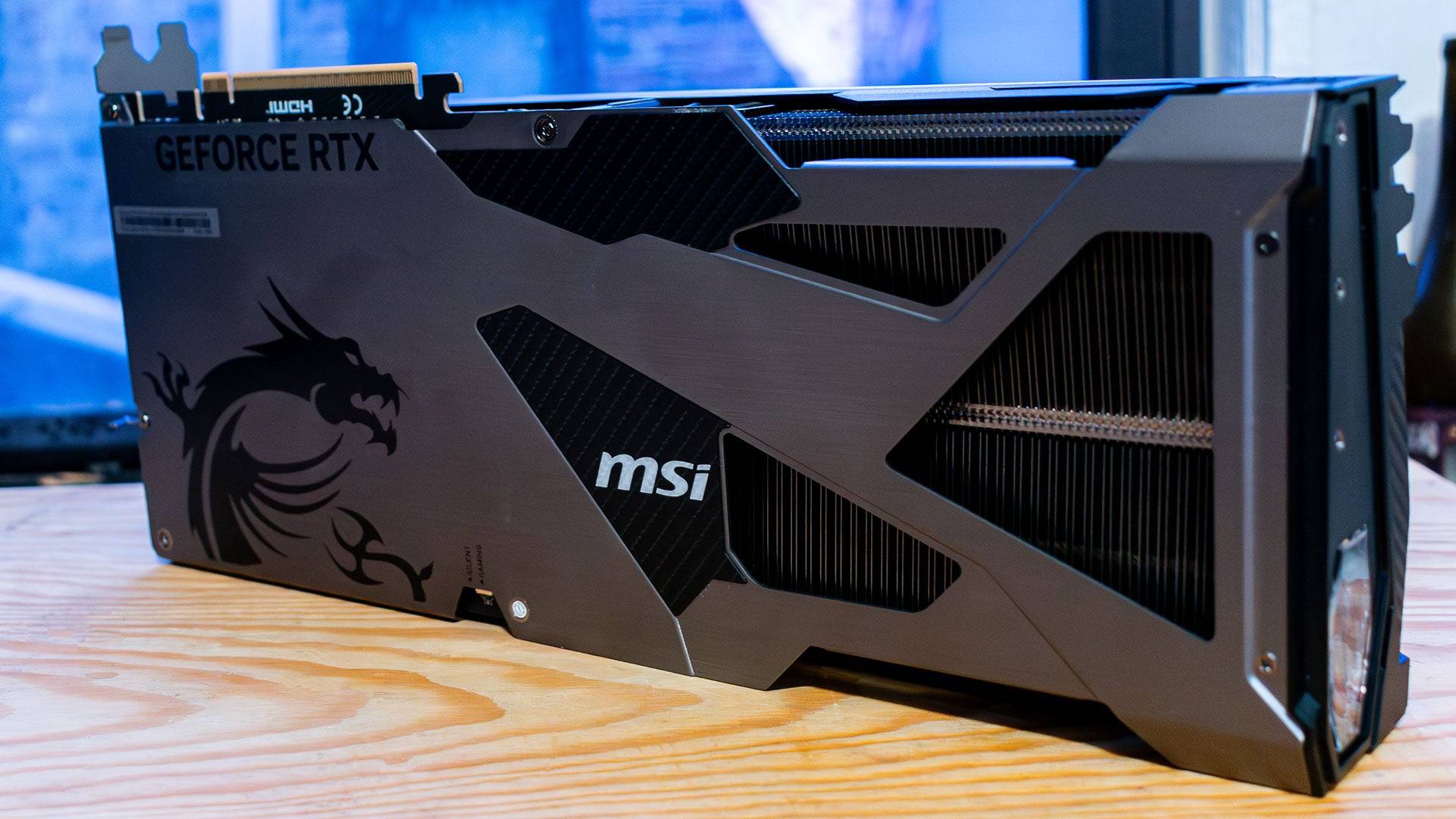
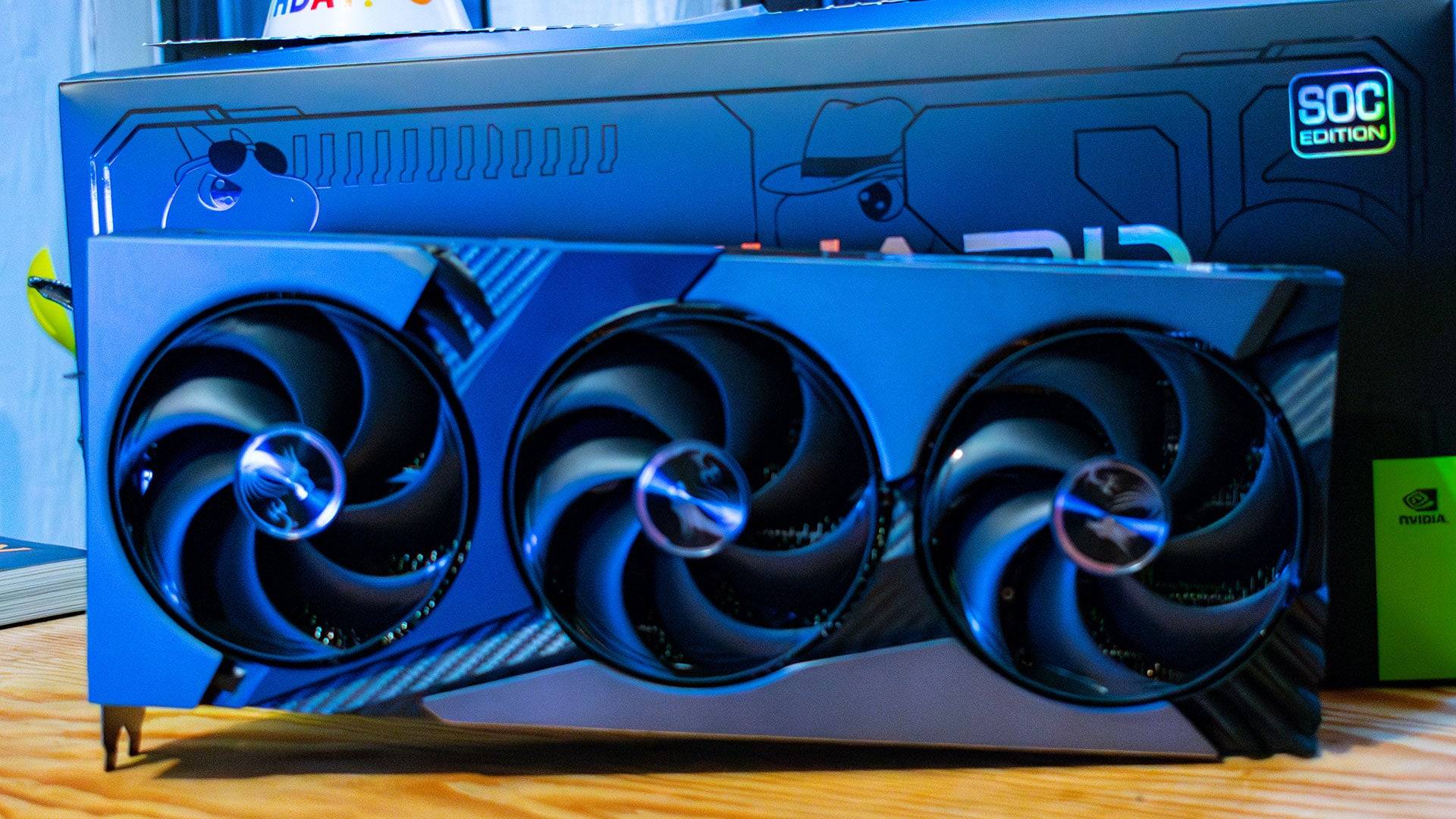
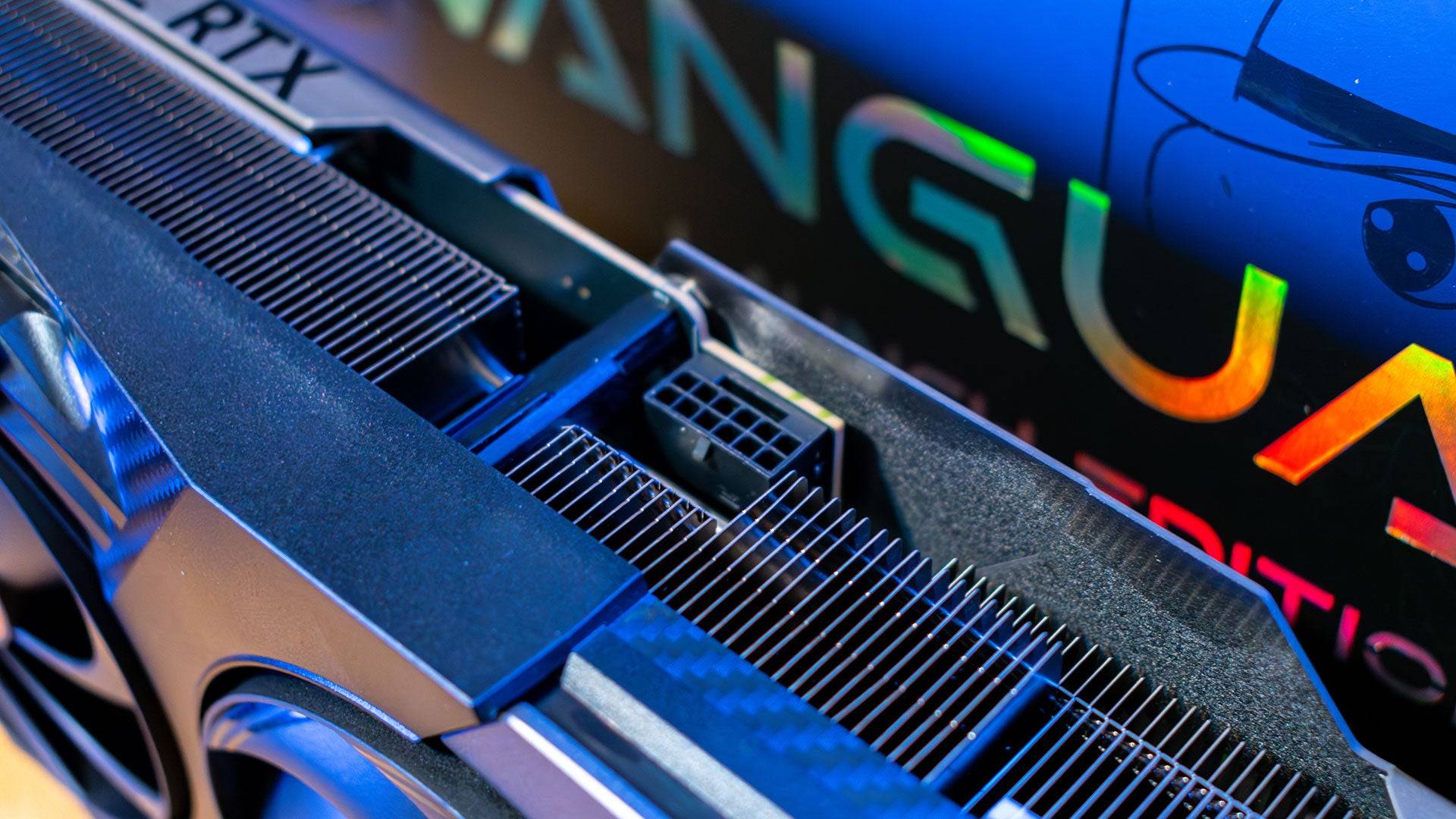
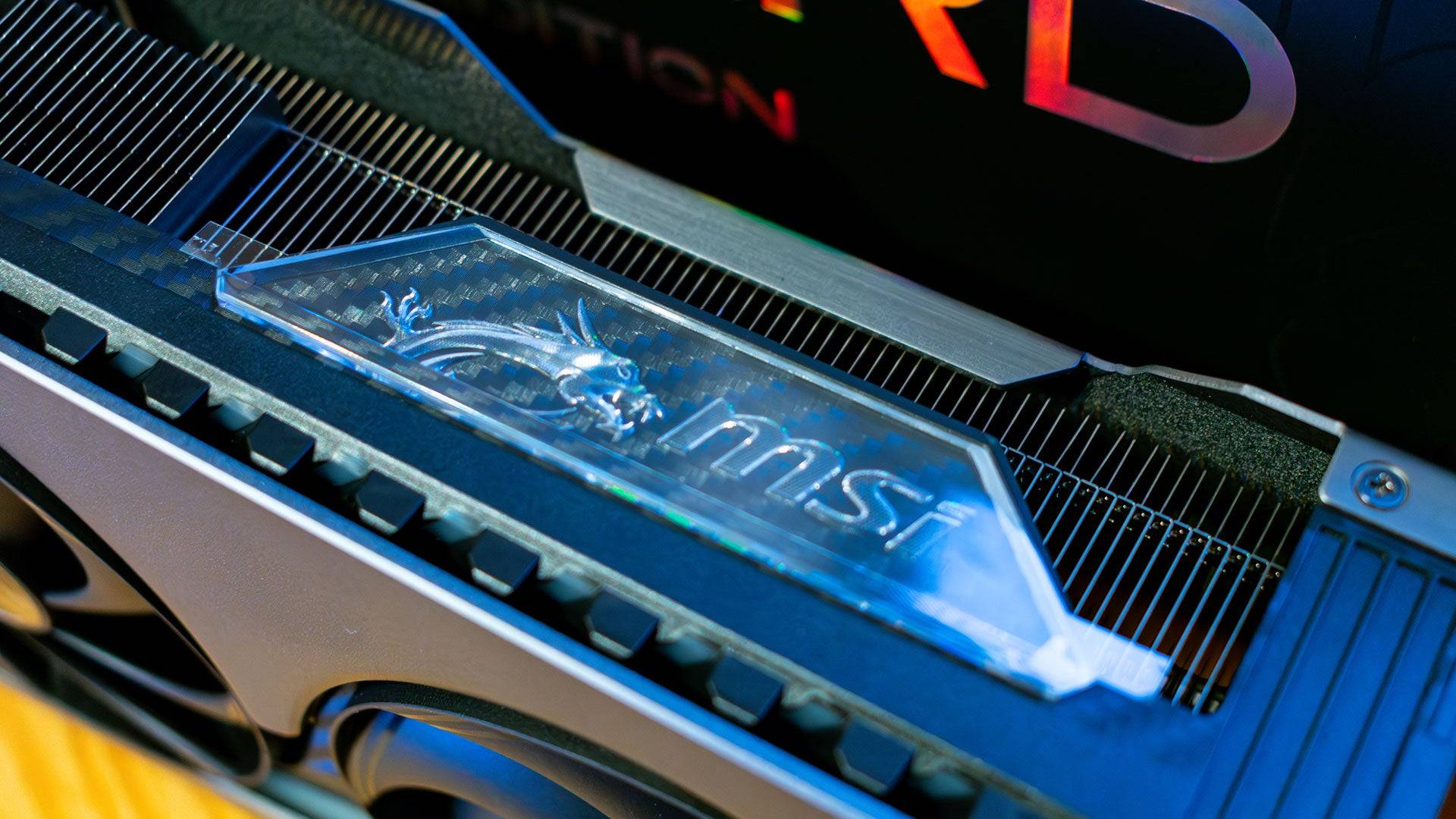
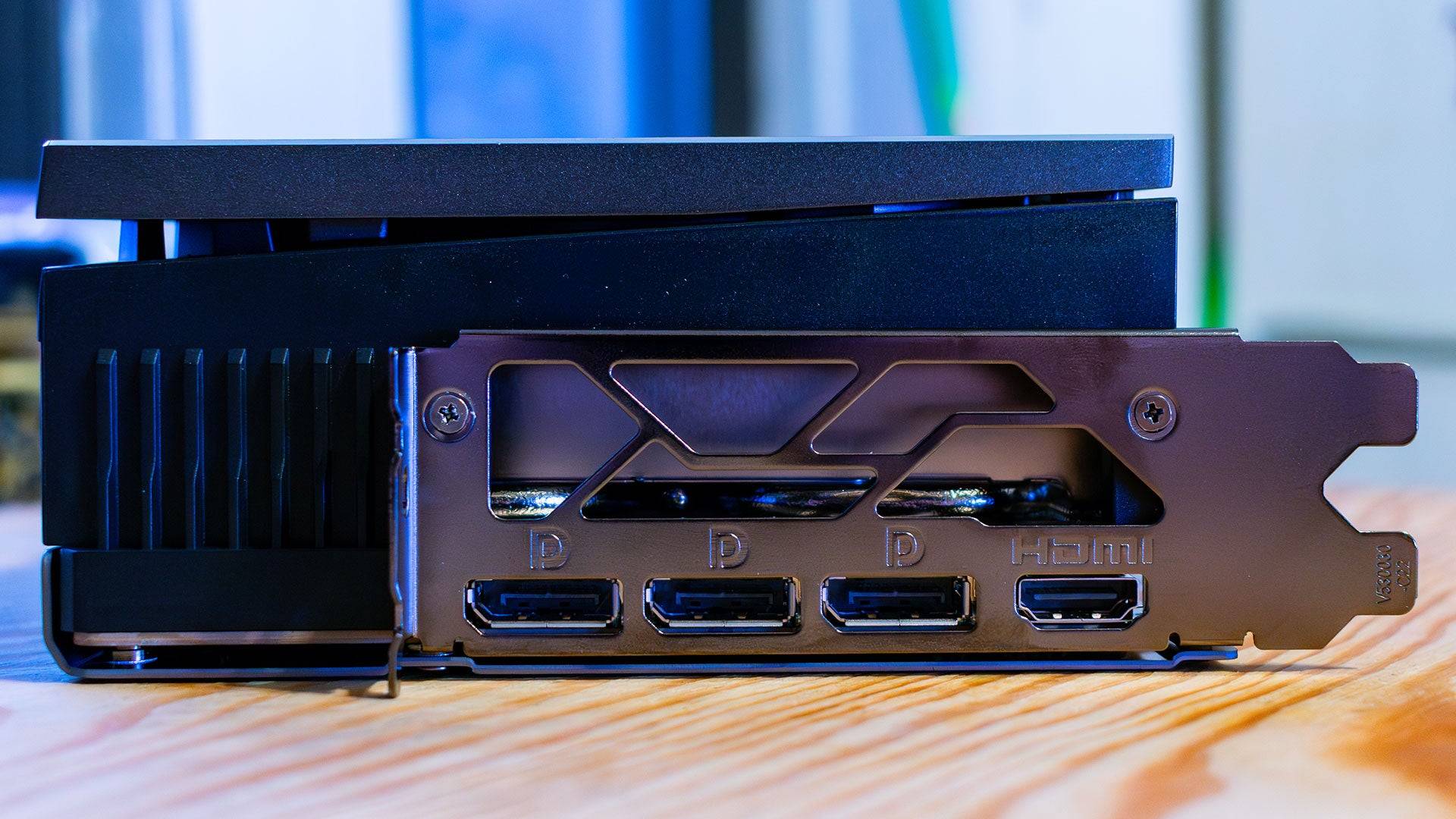

Specs and Features
The Nvidia GeForce RTX 5070 Ti is the third graphics card utilizing Nvidia's Blackwell architecture. Initially designed for AI supercomputers powering models like ChatGPT, Nvidia has adapted it for gaming GPUs, retaining a strong AI focus.
Sharing the GB203 GPU with the RTX 5080, the RTX 5070 Ti features 70 Streaming Multiprocessors (SMs) – 14 fewer than the 5080 – resulting in 8,960 CUDA cores, 70 RT cores, and 280 Tensor Cores. It also boasts 16GB of GDDR7 RAM, albeit slightly slower than the RTX 5080's. The Tensor Cores are key here. While the CUDA cores offer a significant performance boost over the RTX 4070 Ti, Nvidia leverages AI upscaling and frame generation to maximize the card's capabilities.
Blackwell introduces a new AI Management Processor (AMP), offloading workload traditionally handled by the CPU. This significantly improves the efficiency of processes like DLSS and frame generation. DLSS 4, now based on a Transformer model instead of a CNN, enhances image quality, mitigating ghosting and artifacts.
DLSS 4 also features Multi-Frame Generation (MFG), an advanced form of frame generation. Instead of generating one AI frame per rendered frame, MFG generates up to three, potentially quadrupling frame rates. While this increases latency, Nvidia's Reflex technology helps mitigate this.
With a 300W Total Board Power (TBP), the RTX 5070 Ti's power consumption is comparable to the RTX 4070 Ti and 4070 Ti Super. Nvidia recommends a 750W power supply, but an 850W PSU is advisable, especially for high-end models like the MSI Vanguard Edition.

DLSS 4 – Is It Worth It?
While the RTX 5070 Ti offers a performance increase over its predecessor, DLSS 4, particularly MFG, is the standout feature. High refresh rate monitors benefit most from this technology, though significant latency improvements shouldn't be expected. MFG analyzes rendered frames and game engine motion data to predict subsequent frames, generating up to three additional frames per rendered frame. This can significantly boost frame rates, especially on high-end displays. However, the improvement isn't always a linear 4x increase.
Testing in *Cyberpunk 2077* and *Star Wars Outlaws* demonstrated frame rate increases with varying latency changes. While MFG generally produces smoother gameplay, responsiveness might not always improve. Higher base frame rates lead to more accurate frame generation and minimal latency impact. At lower frame rates, lag and artifacts become more noticeable. The RTX 5070 Ti, however, maintains high frame rates even at 4K, minimizing these issues.
Nvidia GeForce RTX 5070 Ti – Benchmarks
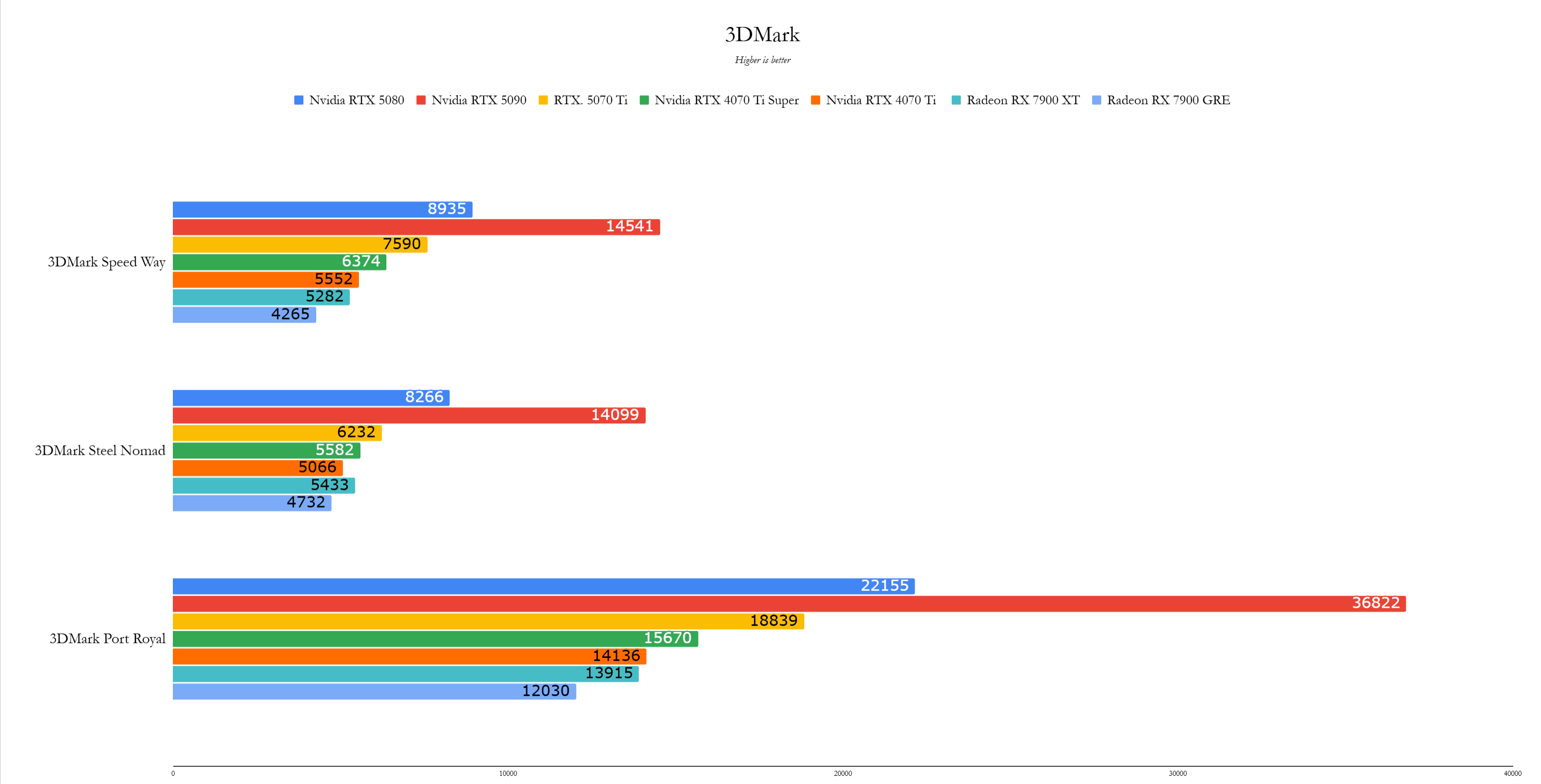

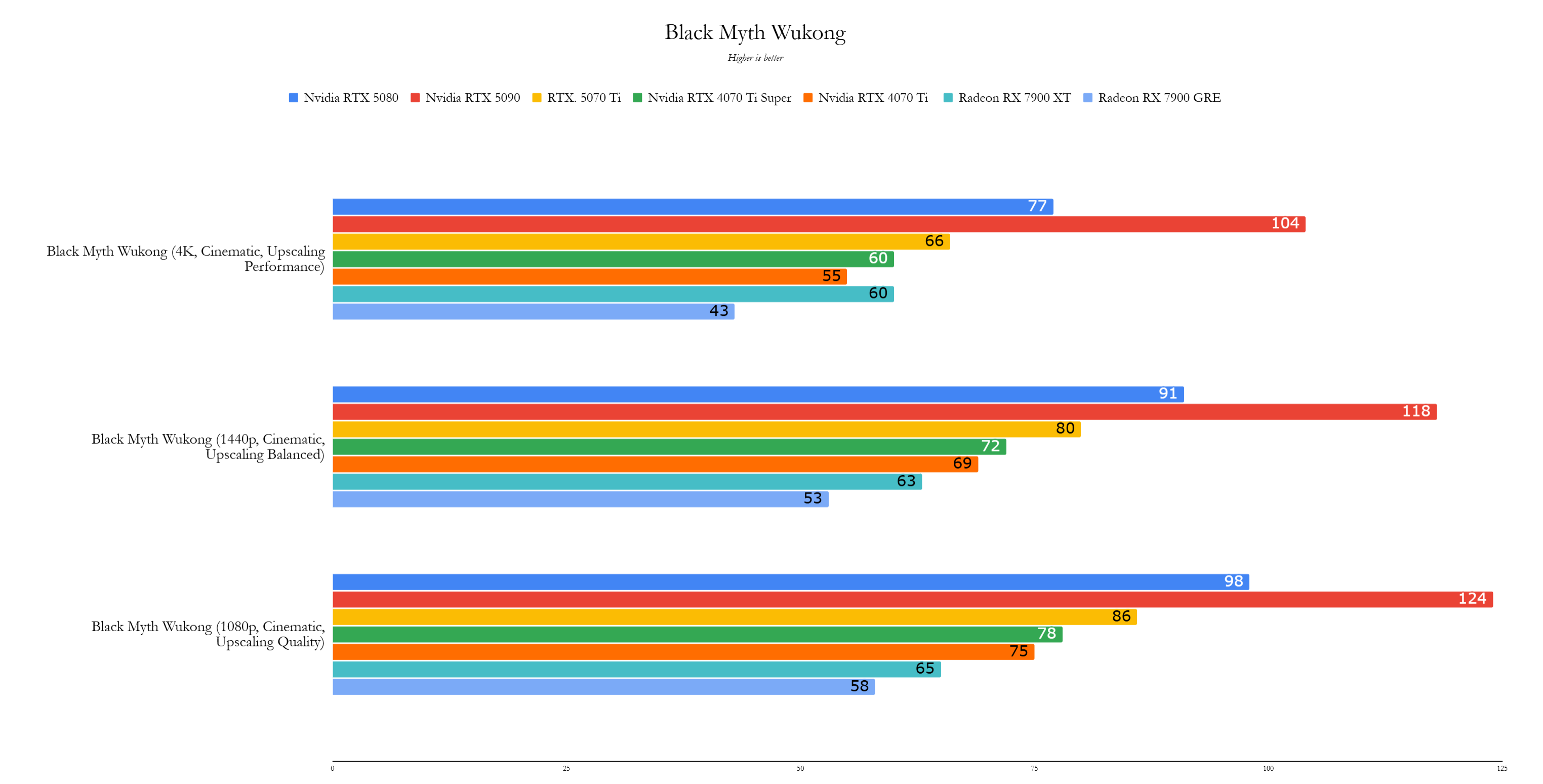
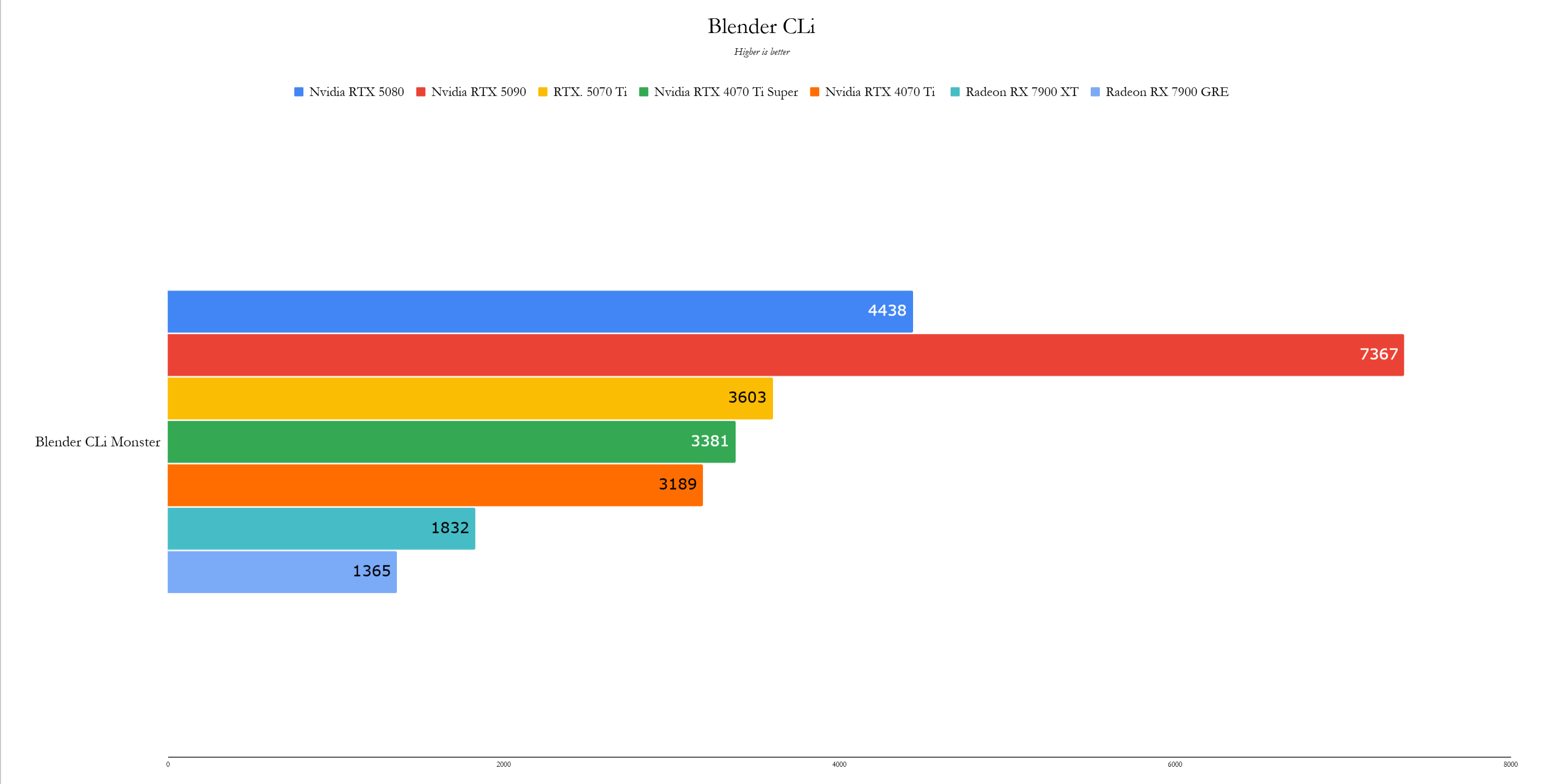
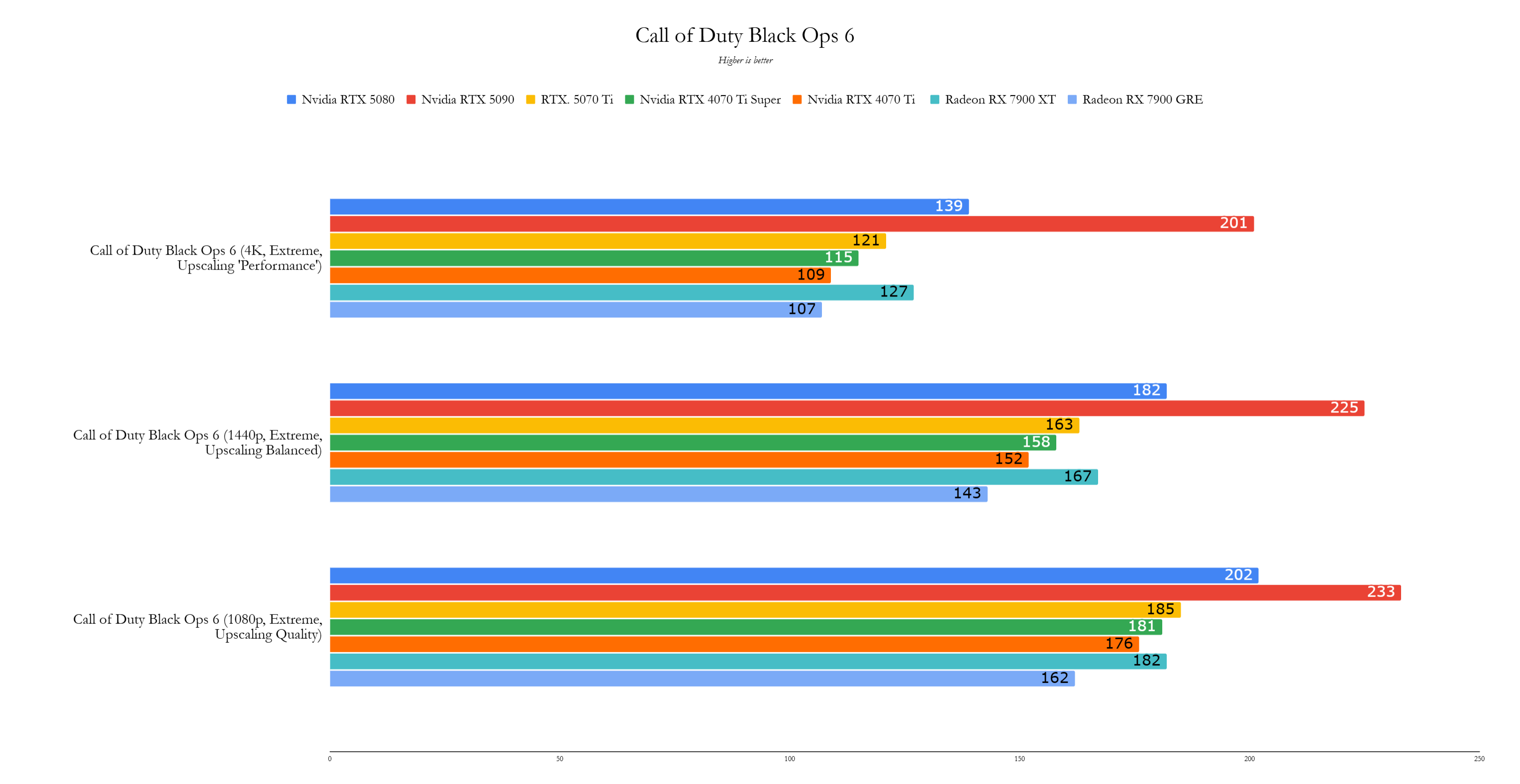
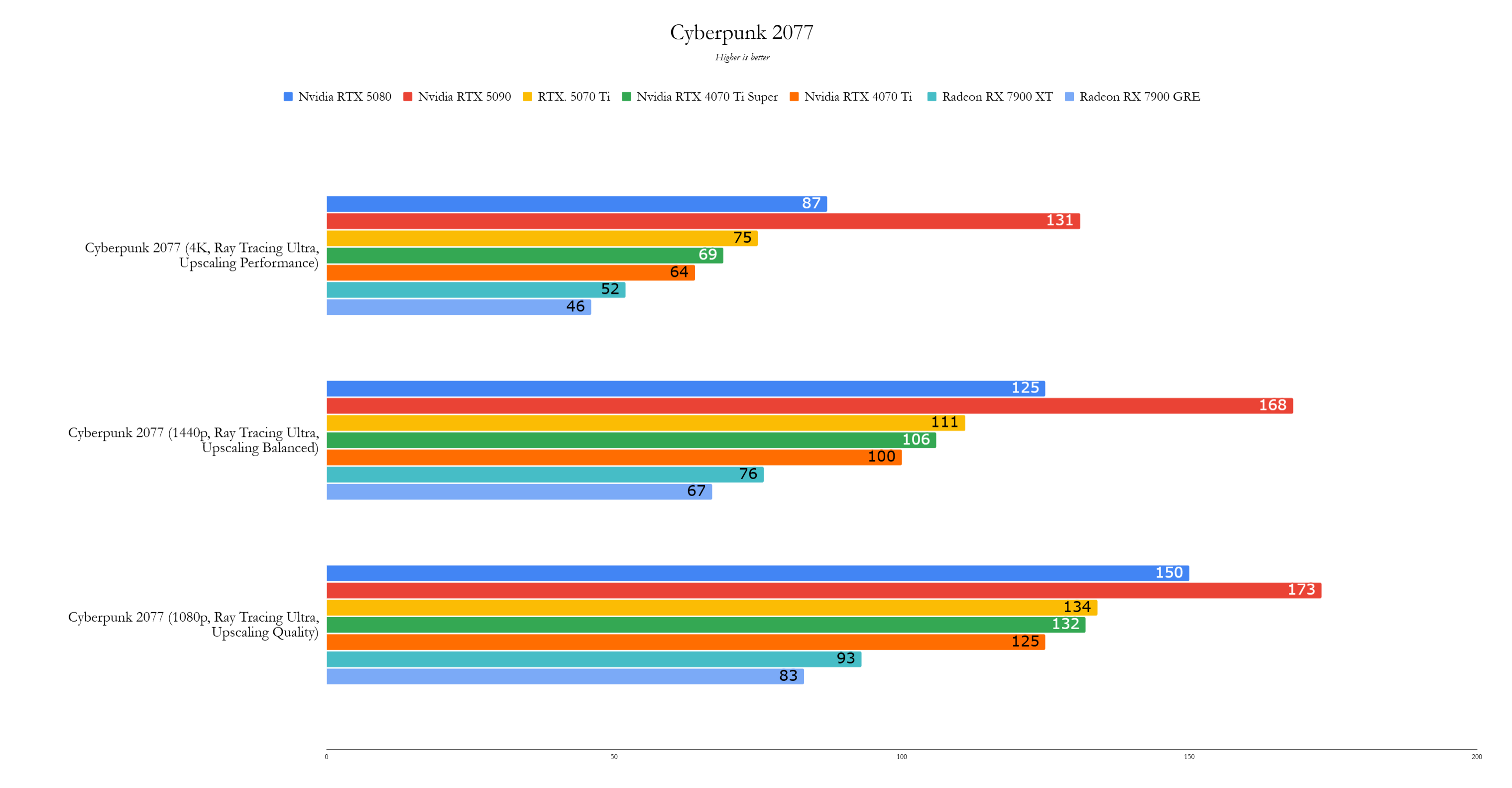
Performance
At 4K, the Nvidia GeForce RTX 5070 Ti surpasses the RTX 4070 Ti Super by approximately 11% and the RTX 4070 Ti by 21%, a more substantial generational improvement than the RTX 5080. In most tested games, it consistently exceeded 60 fps at 4K, even in demanding titles like *Black Myth: Wukong* and *Cyberpunk 2077*.
Test System: CPU: AMD Ryzen 7 9800X3D; Motherboard: Asus ROG Crosshair X870E Hero; RAM: 32GB G.Skill Trident Z5 Neo @ 6,000MHz; SSD: 4TB Samsung 990 Pro; CPU Cooler: Asus ROG Ryujin III 360. The review utilizes the MSI RTX 5070 Ti Vanguard SOC at stock settings to assess its general performance.
Benchmark results across various games, using the latest drivers and without frame generation (except where DLSS/FSR was used), showcase the RTX 5070 Ti's capabilities. Performance gains over the RTX 4070 Ti varied across titles, with some games showing a smaller improvement than others.
The RTX 5070 Ti demonstrates strong performance in titles like *Call of Duty: Black Ops 6*, *Cyberpunk 2077*, *Total War: Warhammer 3*, *Assassin's Creed Mirage*, and *Forza Horizon 5*, consistently delivering high frame rates at 4K. *Metro Exodus: Enhanced Edition* and *Red Dead Redemption 2* showed less significant improvements.
Even at 4K max settings, the RTX 5070 Ti handles demanding titles like *Black Myth: Wukong* with playable frame rates, outperforming competing cards. The results highlight its suitability for 4K gaming.
In conclusion, the Nvidia GeForce RTX 5070 Ti, at its $749 MSRP, represents excellent value for a 4K gaming GPU. It offers a noticeable performance upgrade over its predecessor at a lower price point than the RTX 4070 Ti, solidifying its position as a top choice for 4K gaming.








![Taffy Tales [v1.07.3a]](https://imgs.xfsxw.com/uploads/32/1719554710667e529623764.jpg)









